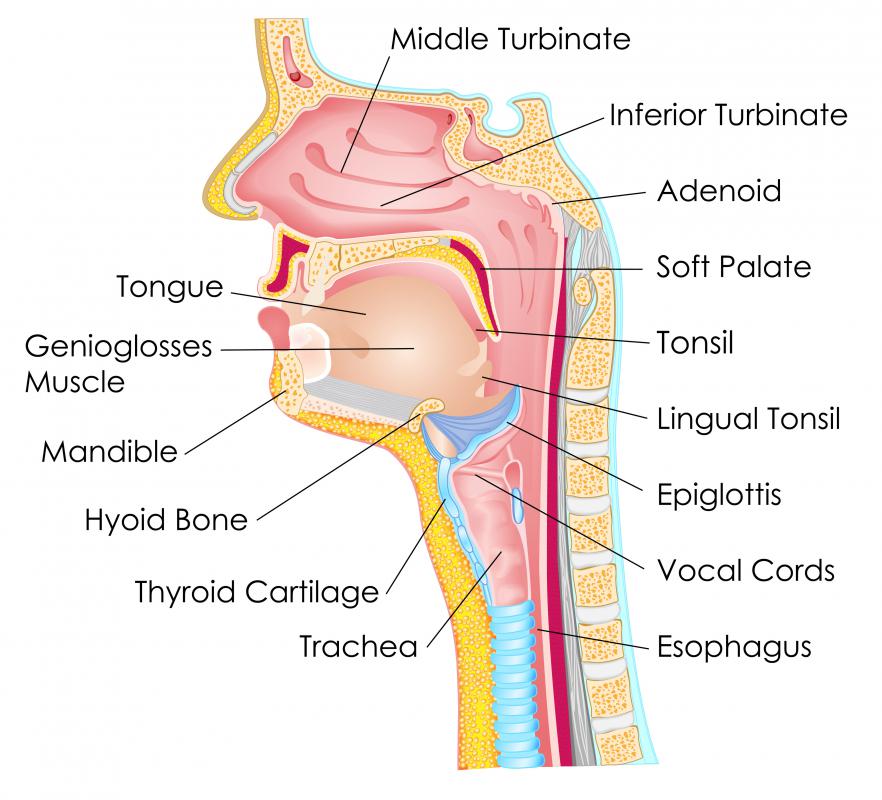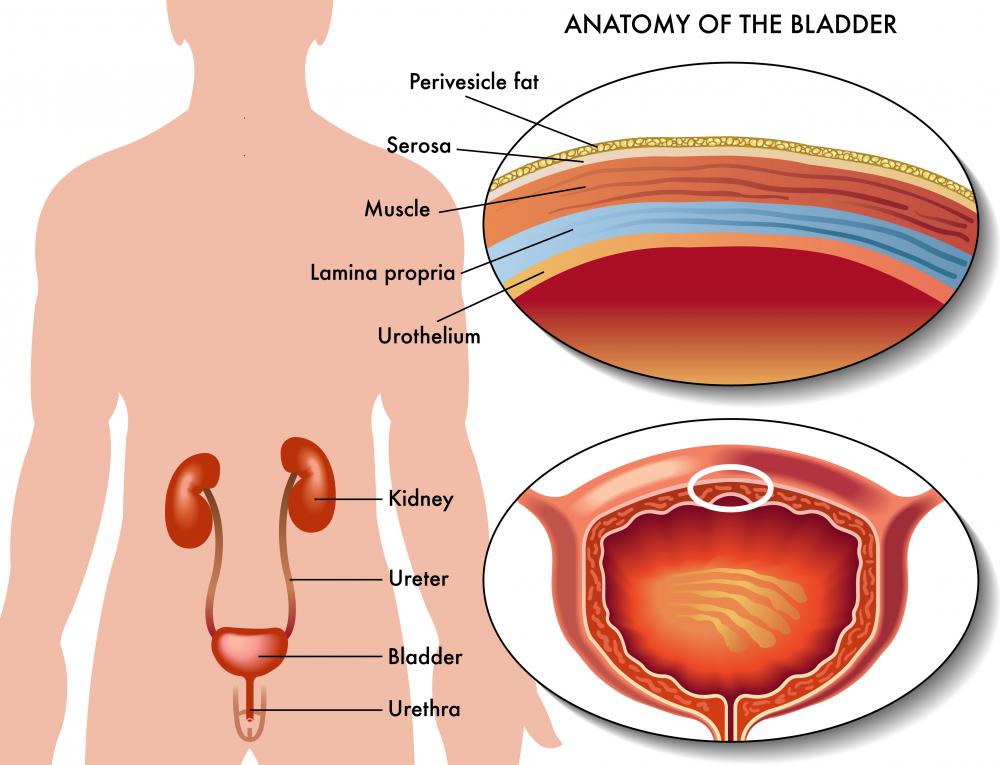At WiseGEEK, we're committed to delivering accurate, trustworthy information. Our expert-authored content is rigorously fact-checked and sourced from credible authorities. Discover how we uphold the highest standards in providing you with reliable knowledge.
What Are the Different Types of Metaplasia?
Metaplasia, a benign process that causes one cell type to transform into another, has a number of different forms. The most common varieties involve switches from squamous cells to glandular cells, or vice versa. Another variety involves changes from one type of glandular cell to another. A rarer type affects transitional cells, which is a cell type unique to the urinary tract. Metaplasia typically occurs as a result of pathologic or physiologic stress to different parts of the body.
One common type of metaplasia is called Barrett's esophagus, a process that involves the cells lining the lower end of the esophagus. Normally, the part of the esophagus immediately above the stomach is lined by squamous cells, which are flat, compressed cells that protect deeper structures from damage. If a patient has a condition called gastroesophageal reflux disease (GERD), the harsh stomach acid travels up into the esophagus and damages the squamous epithelial cells. As a result of the pathological stress to the esophagus, the squamous cells are replaced by glandular cells, a different cell type. Although this is a benign change, patients with this condition are at an increased risk for developing esophageal cancer in the future.

Another type of metaplasia involves a change in cell type from glandular cells to squamous cells, which is the opposite of what happens with Barrett's esophagus. This process occurs in the bronchi, which are the tubes that carry air from the windpipe to distant parts of the lung. Usually these bronchi are lined by glandular cells, which help to produce secretions that trap inhaled particles and protect other parts of the lung from getting clogged. In patients exposed to cigarette smoke or other environmental toxins, the glandular cells are replaced by squamous cells. This decreases the lung’s defenses against inhaled irritants.

Metaplasia from glandular to squamous cells can also occur in the vagina. Typically, the vagina is lined by squamous cells, but this lining changes to glandular cells at the beginning of the cervix. This transition point between squamous and glandular cells changes throughout women's lives, and throughout their menstrual cycles. This metaplastic process is considered to be a benign change that has no major repercussions.

Another type of metaplasia involves transformations from one type of glandular cell to another type of glandular cell. The stomach and small intestine are lined by glandular cells. As the environments are different within these parts of the gastrointestinal tract, especially because the contents of the stomach are much more acidic than those of the intestine, different glandular cells are required to protect underlying structures from damage. When there is inflammation of the stomach, a condition known as gastritis, part of the intestine close to the stomach can have a change in the type of glandular cells present.

A rare type of this condition affects the bladder, which is normally lined by a cell type called transitional cells. With chronic irritation of the bladder, for example with infection, this transitional cell lining transforms into a squamous lining. This process is benign, but can put a patient at risk for a malignancy called squamous cell carcinoma of the bladder.
AS FEATURED ON:
AS FEATURED ON:














Discuss this Article
Post your comments